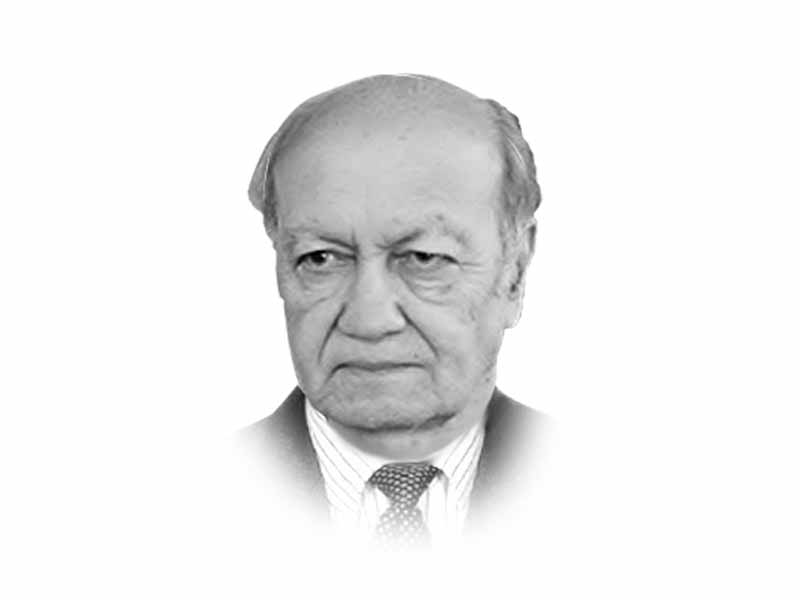

The common thread in both these issues is as democracy takes root people are demanding across the board greater institutional and individual accountability. It is very much possible that General Sharif will not accept the offer as the role of the alliance remains unclear and can prove to be more divisive than unifying especially if it fails to include Iran, Iraq and Syria. Moreover, integrating militaries of different armies that are not at the same professional level and field weapons and equipment from different sources is not an easy task. The responsibility would then rest on a few countries like Pakistan, Turkey, Egypt, Jordan, Malaysia and Indonesia to field their contingents. That aside, the declared objective that has been indicated is that this force is meant to counter Daesh, al Qaeda and other radical organisations. The main concentration of these terrorist organisations is in Syria, Iraq and Libya where major world powers are supporting their proxies in the civil war. Russia, Iran and Iraq are fully behind Bashar al-Assad and the American led coalition has been backing rebel groups including the Kurds. The situation is even more complex as Saudis have been strongly opposed to Assad and are in alliance with the US and Israel to topple the regime. Similarly, in Mosul different groups backed by rival blocks are fighting a battle for survival. In such a scenario to decide which side to back is not without a heavy cost. Furthermore, what moral and legal authority does an alliance have to impose its will on another country? Any military involvement of Pakistan or for that matter of the Saudi-led coalition force in this quagmire will be hazardous. Unless this has the approval of the countries affected and mandated by the UNSC it will be a grave mistake to venture into the civil war.
Moreover, the real problem in most of the Muslim countries is the absence of representative government and huge gap between the rulers and the ruled. The regimes keep a tight grip on the masses through draconian laws and countries flush with petrodollars also share a small percentage of it in the form of subsidies for the poor to keep them quiet. Absence of political support from within has led them lean heavily on foreign powers mostly on the US and Russia, but some rely on Britain and France to prop up their regimes. When regimes fail to earn respect of their own people how can one expect that the world would listen to them. Major powers then exploit these countries to pursue their interest that turns out to be a vicious cycle. Furthermore, divisions within Muslim countries get accentuated due to influence of sectarian parties and the support they receive from Iran and Saudi Arabia to engage in proxy wars.
Israel has been the greatest beneficiary of this decline and internecine warfare. In the absence of any viable military threat and political pressure it has flouted all norms of international behaviour and relentlessly expanded illegitimate Jewish settlements on the occupied territory. With Trump on its side it will be further emboldened to move the capital of Israel to Jerusalem with Muslim countries only making feeble protests.
To defeat the IS or al Qaeda winning the ideological battle is as important as defeating them militarily. In this field the governments have shown scant interest. How important this aspect is becomes clear when we look at Afghanistan where despite the solid support of American and Nato armies for over a decade it has been unable to neutralise the Taliban.
Apart from lagging behind in political development majority of Muslim states have weak economic structures with the exception of Turkey, Malaysia and a few others. Despite enormous oil, gas and natural resources none are among the world’s top 20 in GDP ranking except Indonesia, Turkey and Saudi Arabia. In terms of education they are miserably trailing behind and have little to show in science and technology. Countries that do not have sound and stable political systems and their governments not accountable are generally found trailing behind in economic growth and experiencing chronic social unrest.
Are the Muslim countries destined to be in the backwaters? Surely not, as there is anything “genetic” or associated with religion that keeps nations backward. It has more to do with cultural and social mores and level of political consciousness. This is even more painful as the Islamic Ummah only a few centuries ago was torchbearer of knowledge and a leading civilisation. But since the last three centuries has been on continuous downhill and has even lost the ability to benefit from the positive aspects of the modern Western-dominated civilisation. Its greatest weakness stems from its inability to respond to the current challenges and needs of its population. It has been left behind not only in scientific and technological progress but, equally in arts and literature. Even in the field of sports its achievement is minimal. Civilisations are destined to perish if they fail to respond to the ever-changing requirements of modern times. We have degenerated as a society whose main characteristic is passivity and acceptance of backwardness. All this could however change provided we have that positive impulse driven from within. We should take advantage of the progress that the developed countries have already made in the field of physical and social sciences and strive to be a part of the dynamic world order. But for that the Muslim countries need the resolve and determination that currently is nowhere on the horizon.
Published in The Express Tribune, January 18th, 2017.
Like Opinion & Editorial on Facebook, follow @ETOpEd on Twitter to receive all updates on all our daily pieces.
1731570357-0/elon-musk-(1)1731570357-0-405x300.webp)
-(1)1717678110-0/Kendrick-(1)-(1)1717678110-0-165x106.webp)










COMMENTS (1)
Comments are moderated and generally will be posted if they are on-topic and not abusive.
For more information, please see our Comments FAQ